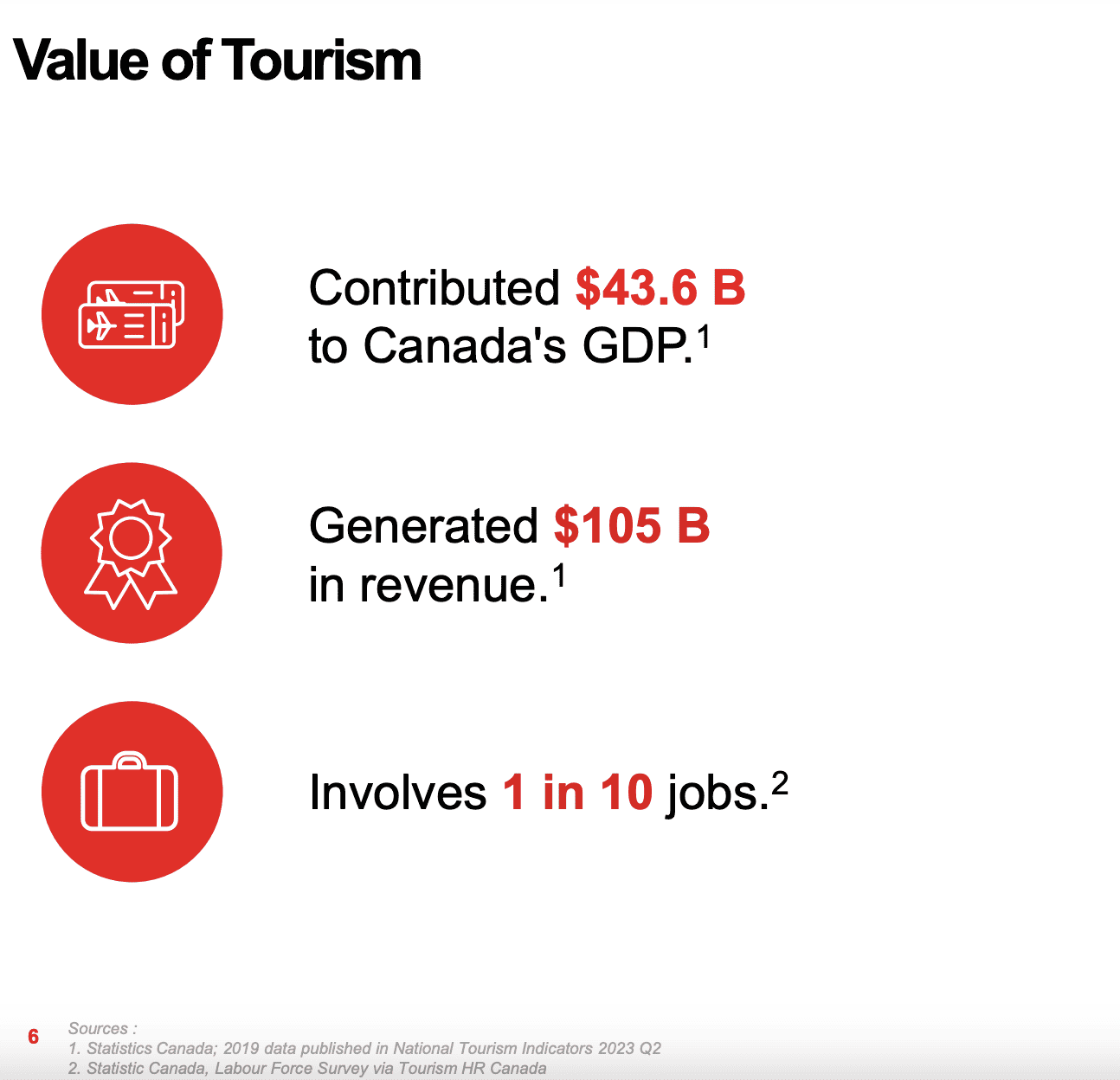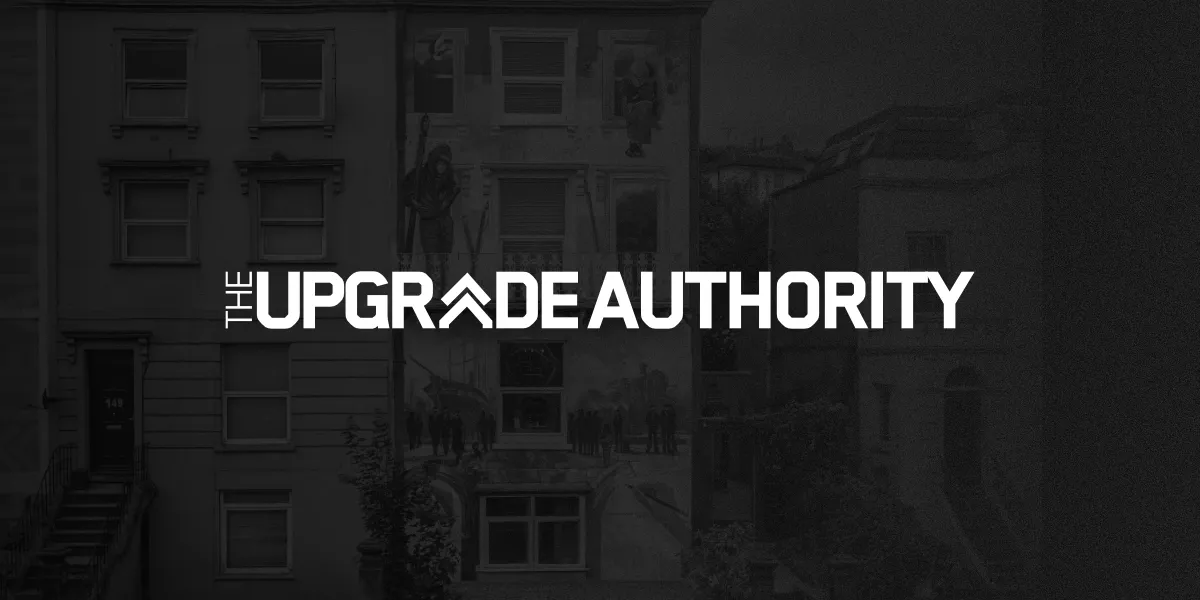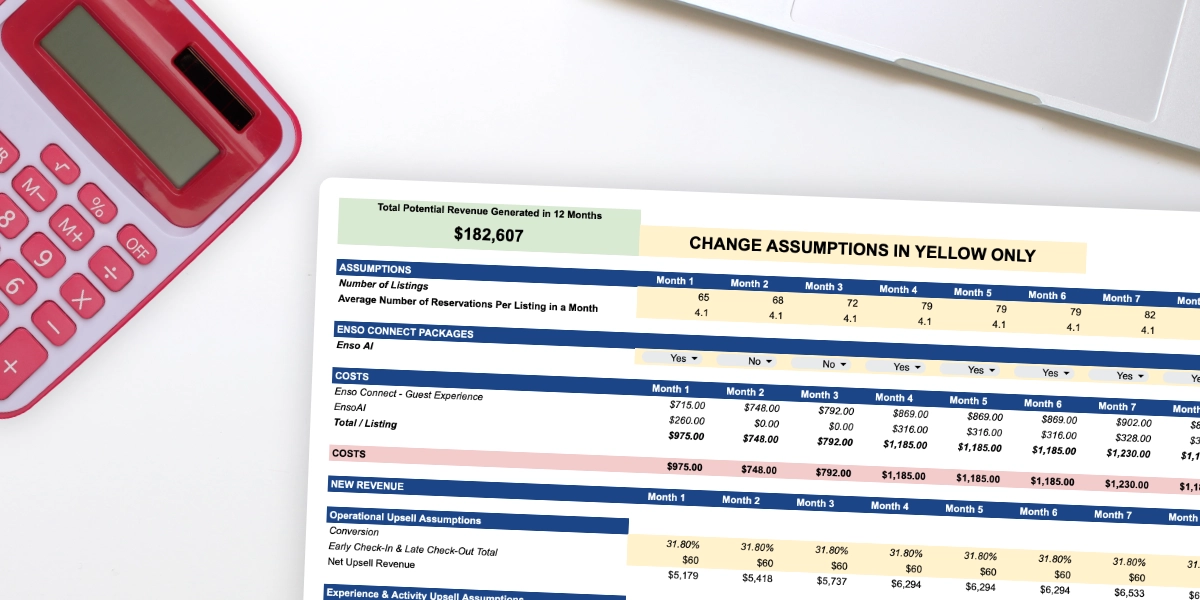If you a short-term rental operator in Canada, you it is a worrisome time for you, if not already a critical threat to your business. The industry has been suffering from broad regulations that overlook the significant economic and social benefits it offers to Canadians. The most recent and devastating legislation has been issued in British Columbia, a world famous tourist destination.
This article will explore why backing the Canadian short-term rental industry is crucial now more than ever. We’ll identify the ways to do this, such as voicing the rights of Canadian property owners, operators and guest through events and petitions. The upcoming CanStays conference is a networking and learning hub for the industry. It brings together industry leaders, legislative and tourism bodies to discuss the challenges and solutions for the sector.
About the CanStays Rental Alliance 2024 Annual Conference
This conference is Canada’s exclusive all-Canadian conference for the vacation rental industry. This annual event will feature the best opportunity to connect, network, and learn from Canadian industry leaders and legislative and tourism representatives to help protect and support Canada’s vacation rental industry. We will tackle the complex issues unique to Canada, from economic, environmental, cultural, and political issues facing the vacation rental industry.
Canada’s vacation rental industry is under attack from wide-sweeping regulations that don’t consider the vital economic and social impact the vacation rental industry provides to Canadians. This conference will give Canadians a legislative voice to rewrite the script and protect the rights of property owners, operators, and guests.
Main Challenges of Short-Term Rental Businesses in Canada
The challenges of professional short-term rentals in Canada are coming from a combination of regulatory, market, and operational factors. From the market analysis and conversations with operators, we’ve identified the following top challenges:
-
The Path to Professionalization
Despite the long way the vacation rental industry has gone in the last couple of yers, there is still space for improvement. The sector has definitely become an integral part of the lodging landscape, however bad actors still exist, that are dragging the industry reputation down.
Another challenge is lack of unity among professional operators. There’s not enough organizations that would have the power to make change, like hotel associations do. We can observe the influence of that in the general narrative regulatory pressure on short-term rentals. The short-term rentals need to unite in order to stand up to the competition from better organized hotel industry.
The difference between professional operators and hustlers
Most of the complaints are usually pointed at the hosts, who have a short-term approach to the business. They prioritize quick profits over sustainable growth, professional reputation, or the well-being of the rental property’s neighborhood. It is important to represent the industry to be a professional and responsible one. Here are the main differences between professional operators and “hustlers”:
Regulation Compliance
Hospitality businesses adhere strictly to local laws, regulations, and zoning codes affecting short-term rentals.
Financial Contribution
Official operators pay taxes and invest in professional licensing
Quality, Consistency and Guest Experience
Professional operators ensure high standards of quality and consistency in their properties. They invest in a reliable and comfortable guest experience.
Customer Service
They prioritize excellent customer service, providing support and addressing guests’ needs promptly and effectively.
Sustainability and Community Relations
Professionals are mindful of their impact on the community, striving to maintain good relationships with neighbors and contributing positively to the local area.
Business Structure
They often operate as registered businesses, with proper licenses, insurance, and tax compliance, reflecting a long-term commitment to their operations.
2. Legislative and Regulatory Challenges
In recent years, Canada’s rental market has seen significant increases. This surge in rental prices has made the situation challenging for many, especially amidst rising inflation.
The public frustration, fuelled by hotel lobby, has pinpointed vacation rentals as a contributor to the housing affordability crisis. This led to the recent implementation of blanket regulations, limiting or restricting professional vacation rental activity in Canadian provinces.
3. Profitability Reduction
There is high market saturation, operational costs have surged, and local regulations are restricting operators. Together with the slow down of the post-pandemic “gold rush” and political uncertainty in the world, many operators are not seeing the same levels of revenue as it was in the past.
Join the Conversation about Building a Successful Short-Term Rental Business in Canada
Patchwork of Vacation Rental Regulations
Different municipalities have different rules and resources to regulate STRs, creating a lack of consistency and enforcement across the country.
Here’s a short overview of the vacation rental regulation in Canada, broken down by Provinces and Territories:
Disclaimer: Please note that this information does not constitute legal advice. We recommend consulting official municipal sources for the latest and most accurate regulations.
Ontario: The Heartland Province
In Ontario, the Municipal Act and City of Toronto Act grant cities broad authority to regulate short-term rentals (STRs). Here’s an overview of how STRs are managed in Ontario:
Local Authority
-
- Cities have the power to decide where STRs are allowed, how they are taxed, and what licenses hosts need.
- This flexibility allows communities to manage the impact of the booming short-term rental market.
Regulation Details:
Definition: A temporary rental unit is a home rented out for less than 28 consecutive days, excluding hotels and motels.
Eligibility to Register: All temporary rental units in Toronto must register with the city. Eligible housing types include:
-
-
-
- Rooms in homes
- Basement apartments
- Units on residential properties (including laneway suites)
-
-
Condominiums and Apartments: Check association bylaws before renting out condos or apartment units. Some buildings regulate or prohibit short-term rentals.
Primary Residence Requirement: The rental home must be your primary residence, where you live and use the address for bills, taxes, and insurance.
Ineligible Properties: Second homes, investment properties, and non-residential areas are ineligible for STRs.
Municipal Accommodation Tax (MAT): Operators must collect and remit a 6% MAT on all rentals, filing online reports and payments quarterly.
Constantly Evolving Rules:
-
- Local specifics vary and evolve, so it’s essential to research how STR regulations work in your specific city.
Check with your municipality about local bylaws and permit requirements before leasing a property on a short-term basis. Stay informed as regulations may change.
Manitoba: The Keystone Province
In Manitoba, the regulation of short-term rentals has undergone recent changes. Let’s explore the key aspects:
Licensing and Accommodation Tax
-
- Licensing Requirement: Anyone listing a short-term rental must obtain a license.
- Accommodation Tax: A five-percent accommodation tax applies to short-term rentals.
- **Exemption for Multiple Listings**: Owners who currently operate multiple short-term rental properties in areas zoned for single-family homes and duplexes are grandfathered in.
Downtown vs. Residential Areas
-
- Initially, the proposed regulations treated short-term rentals in downtown Winnipeg and commercial or multi-family zones more leniently.
- Amendment: Thanks to the efforts of Coun. Sherri Rollins, short-term rentals in downtown Winnipeg are now treated the same as those in residential neighborhoods. This ensures consistency and addresses concerns raised by residents regarding noise and disturbances from parties.
Safety and Resident Concerns
-
- Condo owners, like Craig Penner from Glasshouse Skylofts downtown, have witnessed excessive noise and criminal activity in short-term rentals within their buildings.
- The task force aims to strike a balance between responsible regulation and the benefits of short-term rentals.
- Melanie Mitchell, president of the Manitoba Association of Short Term Rental Owners, emphasizes that short-term rentals are part of the solution, not the cause of all issues in Winnipeg
British Columbia: The Pacific Province
To strengthen local government tools for bylaw enforcement, the Act introduces several key measures:
- Increased Fines: Maximum fines for regional district bylaw offences under the Offence Act will be raised to $50,000. Local governments can now issue fines of up to $3,000 per infraction per day under the Bylaw Enforcement Ticket Regulations.
- Data Sharing: A data-sharing system will be implemented, requiring short-term rental platforms to provide listing information to the Province. This information will be shared with local governments for bylaw enforcement and with the Ministry of Finance and the Government of Canada for tax auditing purposes.
- Platform Accountability: Short-term rental platforms are obligated to remove listings lacking valid local government business licenses upon local government request. Listings without a valid provincial registry number will not be allowed.
- End of Legal Non-Conforming Use: The removal of nonconforming use protections that allowed short-term rental hosts to continue operating in specific areas despite updated local bylaws prohibiting their use in those areas.
- Provincial Registry: A short-term rental registry will be established, requiring hosts and platforms to register with the Province.
- Compliance and Enforcement Unit: A provincial Compliance and Enforcement Unit within the Ministry of Housing will support the enforcement of the new legislation.
- Principal Residence Requirement: The legislation introduces a provincial (External link)principal residence requirement, limiting short-term rentals to the host’s principal residence, plus one secondary suite or accessory dwelling unit on the property. This requirement applies to municipalities with a population of over 10,000 people and adjacent communities, with exemptions where necessary. Exempt municipalities may choose to “opt in” to this requirement prior to March 31, 2024.
Starting from May 1, 2024, short-term rentals in BC will be restricted to principal residences and either a secondary suite or an accessory dwelling unit (ADU) in many communities.
Alberta: The Energy Province
Province-Wide Regulations
Alberta’s Tourism Levy
Certain individuals or entities are exempt from paying the tourism levy if they provide valid evidence of entitlement. Exemptions include the Government of Canada, armed forces personnel stationed in Canada, and Indigenous individuals or bands providing accommodation on a reserve in Alberta.
Specific Situations
The tourism levy doesn’t apply to accommodations occupied by the same individual continuously for 28 days or more, as well as accommodations with a purchase price of less than $30 per day or $210 per week that are not listed on an online marketplace.
Municipal Regulations
Calgary Example
Short-Term Rentals in Secondary Suites
A short-term rental is defined as providing temporary accommodation for compensation in a home or part of a home for up to 30 days. Note that businesses with a bed and breakfast permit are not classified as short-term rentals.
Licensing System
Calgary has a two-tiered licensing system for short-term rentals:
Tier 1: For hosts offering 1 to 4 rooms for rent, the license fee is $100 per property.
Tier 2: Hosts must comply with regulations outlined in the Business License Bylaw, including:
- Maximum Guests: A host cannot allow more than two adults per room (excluding minors).
- Advertising: Hosts must include their business license number in any advertising for their short-term rental property.
- Emergency Contact: Hosts must display the name, phone number, and email address of an emergency contact person available 24/7.
City of Edmonton
Quebec: La Belle Province
Registration and Licensing
-
- Quebecers who rent out their homes on a short-term basis (less than 31 days) are required to obtain a registration number through the province.
- The registration number is available “easily and at a reasonable cost” of between $50 and $751.
- Landlords must obtain an establishment number from the Government of Quebec to lease a primary residence for a short term. This number must be visible in any advertisement or announcement related to the short-term rental of a property.
Tax Obligations
If you provide short-term accommodations in Quebec (such as renting out your condo or cottage for short periods using social media or digital accommodation platforms), follow these steps to meet your tax obligations:
-
-
-
- Step 1: Register your tourist accommodation establishment.
- Step 2: Register for the tax on lodging.
- Step 3: Register for the GST and QST (Goods and Services Tax and Quebec Sales Tax).
- Step 4: Collect and report the GST and QST for short-term accommodations.
- Step 5: File your income tax return.
-
-
Depending on the type of accommodation you offer, there may be other tax obligations. For more information, see Other Tax Obligations From Operating a Tourist Accommodation Establishment.
Additional Considerations:
La Belle Province
Registration and Licensing
-
- Quebecers who rent out their homes on a short-term basis (less than 31 days) are required to obtain a registration number through the province.
- The registration number is available “easily and at a reasonable cost” of between $50 and $751.
- Landlords must obtain an establishment number from the Government of Quebec to lease a primary residence for a short term. This number must be visible in any advertisement or announcement related to the short-term rental of a property.
Tax Obligations
If you provide short-term accommodations in Quebec (such as renting out your condo or cottage for short periods using social media or digital accommodation platforms), follow these steps to meet your tax obligations:
-
-
-
- Step 1: Register your tourist accommodation establishment.
- Step 2: Register for the tax on lodging.
- Step 3: Register for the GST and QST (Goods and Services Tax and Quebec Sales Tax).
- Step 4: Collect and report the GST and QST for short-term accommodations.
- Step 5: File your income tax return.
-
-
Depending on the type of accommodation you offer, there may be other tax obligations. For more information, see Other Tax Obligations From Operating a Tourist Accommodation Establishment.
Additional Considerations:
Nova Scotia: The Bluenose Province
Registration Requirement
-
- As of April 1, 2023, all short-term rentals in the province, including those within people’s homes, must register annually with the Tourist Accommodations Registry.
- The registration number obtained must be included in their online booking platform listings.
- These changes aim to provide a clear understanding of short-term rentals in Nova Scotia and give municipalities access to information for enforcing land-use bylaws.
- Previously, there was an exemption for short-term rentals operated in or attached to the host’s primary residence, but this exemption has been removed.
Definition of Short-Term Rentals:
-
- Short-term rentals are defined as roofed tourist accommodations provided for 28 days or less. This includes both traditional accommodations (such as hotels, motels, inns, and B&Bs) and housing stock (such as residential homes, condos, and apartments).
- The primary residence is defined as the home where someone lives as an owner or tenant, and it is also the address used for bills, identification, taxes, and insurance.
Responsibilities for Marketing Platforms
-
- Marketing platforms like Airbnb and Vrbo must ensure that only operators with a valid registration number are selling short-term rentals through their platforms.
- These platforms are also required to share information covered under the Tourist Accommodations Registration Act with the province to support enforcement.
La Belle Province
Registration and Licensing
-
- Quebecers who rent out their homes on a short-term basis (less than 31 days) are required to obtain a registration number through the province.
- The registration number is available “easily and at a reasonable cost” of between $50 and $751.
- Landlords must obtain an establishment number from the Government of Quebec to lease a primary residence for a short term. This number must be visible in any advertisement or announcement related to the short-term rental of a property.
Tax Obligations
If you provide short-term accommodations in Quebec (such as renting out your condo or cottage for short periods using social media or digital accommodation platforms), follow these steps to meet your tax obligations:
-
-
-
- Step 1: Register your tourist accommodation establishment.
- Step 2: Register for the tax on lodging.
- Step 3: Register for the GST and QST (Goods and Services Tax and Quebec Sales Tax).
- Step 4: Collect and report the GST and QST for short-term accommodations.
- Step 5: File your income tax return.
-
-
Depending on the type of accommodation you offer, there may be other tax obligations. For more information, see Other Tax Obligations From Operating a Tourist Accommodation Establishment.
Additional Considerations:
New Brunswick: The Bilingual Province
Registration and Task Force
-
- New Brunswick’s housing minister, Jill Green, has pledged to create a task force on regulating short-term rentals. This task force aims to bring the province together with municipalities to look at regulations.
- Approximately 0.7% of housing stock (equivalent to 3,400 units) across the province is used for short-term rentals. While this may not seem significant from a provincial perspective, it has varying impacts on cities like Saint John, Fredericton, Moncton, and Saint Andrews.
- The task force will address safety, appropriate taxation, zoning, and inspection requirements for short-term rentals.
Existing Regulation in Fredericton
-
- Fredericton is currently the only jurisdiction in New Brunswick with any sort of regulation related to short-term rentals.
- The bylaw in Fredericton states that property owners can only rent out units for periods of less than 28 days if they live in the same building.
Different Approach from Last Year
-
- The task force’s work is expected to differ from a review conducted last year by the Department of Tourism, Heritage, and Culture.
- The previous review focused more on tourism aspects, whereas the new task force will consider housing-related concerns.
Safety and Inspections
-
- Moncton City Council has been advocating for rules that prioritize safety and inspections for short-term rentals, especially after a deadly fire at an Airbnb in Montreal.
- The commitment by Minister Jill Green to create a task force is a welcome step in addressing these issues1.
Saskatchewan: The Breadbasket of Canada
While there are no specific regulations governing short-term rentals at the provincial level in Saskatchewan, various municipalities have established their own rules to ensure responsible, sustainable operations. Let’s delve into the guidelines for short-term rentals in two key urban centers: Regina and Saskatoon.
Regina
-
- The city of Regina does not have specific provincial regulations for short-term rentals. However, it’s essential to comply with local guidelines.
- If you’re considering running a short-term rental business in Regina, ensure responsible operations and adhere to safety standards.
- Keep an eye out for any future regulations that may be introduced at the municipal level.
Saskatoon
-
- Saskatoon, like many other cities, regulates short-term accommodations (less than 30 days) to ensure safety and neighborhood compatibility.
- There are two relevant categories for short-term rental hosts:
- Homestays: These are short-term rental accommodations in the host’s principal residence (including secondary suites where the host lives in the main home on the property).
- Guest Limits:
- One-unit dwelling: Up to 6 guests
- Secondary suite: Up to 3 guests
- Duplex, townhouse, apartment, or condominium: Up to 2 guests
- On-site Parking: 2 hard surface spaces (except for specific zoning districts)
- Hosts must obtain a commercial business license for hosting guests in secondary suites or accommodating more than two guests in their home.
- A host declaration is required as part of the business license application, confirming compliance with safety requirements.
- Guest Limits:
- Short-Term Rental Properties: These are rental accommodations in homes that are not the host’s principal residence.
- Discretionary Use Approval:
- Required for short-term rental properties in certain residential zoning districts (R1, R1A, R1B, R2, R2A, RMHL, RMTN, RMTN1, RM1, RM2, RM3, and RM4).
- Apply via the Discretionary Use Application form.
- Guest Limits: Up to 6 guests
- On-site Parking: 1 hard surface space (except for specific zoning districts)
- Host Declaration: Required (same document as described for homestays)
- Discretionary Use Approval:
- Homestays: These are short-term rental accommodations in the host’s principal residence (including secondary suites where the host lives in the main home on the property).
Newfoundland and Labrador: The Big Land
In Newfoundland and Labrador, new regulations have been introduced to govern short-term rentals, including platforms like Airbnb. Here are the key points:
Registration Requirement
-
- All short-term accommodations, such as Airbnbs or other similar rentals, must register with the provincial government.
- The former Tourism Establishment Act has been renamed the Tourism Accommodations Act.
- Existing accommodations licensed by the Department of Tourism, Culture, Arts, and Recreation will be automatically registered under the new regulations.
- Unlicensed operators must register by March 31, 2024.
- The registration process is free.
Enforcement
-
- If accommodations are not registered by the deadline, the province will collaborate with online marketing platforms to prevent unlicensed accommodations from being advertised.
- After March 31, 2024, unregistered accommodations will no longer have access to these platforms.
Reasons for Change
-
- The update aims to modernize the existing legislation (originally introduced in the 1970s) to better reflect the current tourism industry.
- Unlicensed accommodations can lead to safety concerns, and this move ensures a level playing field for all operators.
Statistics
-
- Data from Destination St. John’s indicates that there are over 800 unlicensed operators on the northeastern Avalon Peninsula alone.
- These operators booked 68,000 room nights and generated $14 million in revenue last year.
Prince Edward Island: Birthplace of Confederation
On Prince Edward Island, any temporary guest accommodation that operates for a continuous period of less than one month, be it marketed via a booking site like Airbnb or any other means, must be licensed as a tourism property.
The Tourism Industry Act and regulations describe the types of properties, minimum safety, services and amenity standards and other requirements for a licence.
The Short-Term Rental (STR) amendment to the Zoning and Development Bylaw came into effect March 28, 2023, meaning that those wishing to rent their primary residence, either by room or as a whole, now need to meet the new zoning regulations as well as have a license from the Province of Prince Edward Island.
Charlottetown City Council voted on this bylaw amendment February 15 and February 28, 2022, and approved the regulations with the amendment that they not come into effect for a year and a month; the year grace period has now ended for operators.
While the zoning bylaw is now in effect, the City’s STR licensing system will launch at the end of this tourist season, October 31, pending a council approved licensing bylaw. The delay in licensing is to ensure an effective system roll-out and will not interfere with enforcement of the short-term rental amendment to the Zoning and Development Bylaw.
People who would like to rent a room in or the entirety of their primary residence will require a license from the Province of Prince Edward Island and will need to conform with the City of Charlottetown Official Plan and the Zoning and Development Bylaw requirements.
For more information about short term rentals, visit: charlottetown.ca/cms/one.aspx?portalId=10500387&pageId=16539166
Northwestern Territories: Land of the Polar Bear
In the Northwest Territories, regulations governing short-term rentals are essential to ensure responsible and sustainable operations. Let’s explore the relevant aspects:
Registration Requirement
-
- All short-term accommodations, including platforms like Airbnb, must register with the provincial government.
- The former Tourism Establishment Act has been renamed the Tourism Accommodations Act.
- Existing accommodations licensed by the Department of Tourism, Culture, Arts, and Recreation will be automatically registered under the new regulations.
- Unlicensed operators must register by March 31, 2024.
- The registration process is free.
Enforcement
-
- After the deadline (March 31, 2024), unregistered accommodations will no longer have access to online marketing platforms.
- Collaborative efforts with these platforms will prevent unlicensed accommodations from being advertised.
Reasons for Change
-
- The update aims to modernize existing legislation (originally introduced in the 1970s) to better reflect the current tourism industry.
- Unlicensed accommodations can lead to safety concerns, and this move ensures a level playing field for all operators.
Yukon: The Klondike
After two years of study and discussion, the Yukon City Council on Aug. 1 voted 5-0 to approve adoption of the Yukon Unified Development Code and Zoning Map.
The document regulates development within Yukon’s municipal boundaries “with the specific intent to establish land use regulations for the City of Yukon.”
The city’s 147-page development code includes a section that specifically regulates short-term rentals – commonly referred to as “Airbnb” or “Vrbo” online vacation rentals.
Short-term rental operators violating the new code are subject to stiff fines and face revocation of required permits and licenses.
The newly adopted Unified Development Code requires short-term rental operators to “obtain and maintain a city-issued short term rental license.”
All property owners within 600 feet will be notified about any request for a special use permit for a short-term rental in their neighborhood.
The code reads:
- Use of the short-term rental for any commercial or social event is prohibited.
- A licensee or guest of a short-term rental shall not use or allow use of sound equipment, amplified music and/or musical instruments.
- A licensee of guest of a short-term rental shall not violate any parking ordinance, noise ordinances or any other ordinances of the City of Yukon Municipal Code.
Among information that short-term rental operators must post on the property and provide to renters/guests are:
The license number and expiration date, the operator’s and property manager’s names and phone numbers, location of off-street parking spaces available for guests, occupancy limits, and floor plan with fire exit and escape routes.
Section 904 of the Unified Development Code specifies fines for violating any terms of the short-term rental license: $250 per day for the first violation, $500 per day for the second violation and $750 per day for the third violation.
Anyone advertising a property for short-term rental without first having obtained a special permit and short-rental license also is subject to fines: $200 per day for the first violation, $400 per day for the second violation and $650 per day for the third violation.
Economic Impact of Short-Term Rentals in Canada
The growth of short-terms has transformed the hospitality landscape, prompting discussions about housing, revenue, and policy implications.
Are Vacation Rentals Causing the Housing Crisis?
McGill University study found that vacation rental commercialization has removed up to 14,000 units from the long-term rental market. The research states that this lead to huge housing shortages and affordability issues in Canada. Airbnb noted that this study was funded by the Hotel Trades Council and disagreed strongly with the methodology, accuracy, and conclusions of data.
The Conference Board of Canada’s survey challenges the findings of McGill University study. The Conference Board found minimal evidence that Airbnb activity directly impacts rent levels. Their analysis across 330 neighborhoods in 19 Canadian cities from 2016 to 2022 showed at most a negligible rent increase attributable to Airbnb. While acknowledging a positive correlation between Airbnb concentration and higher rents, the study suggests this may be due to other factors like proximity to amenities rather than Airbnb activity itself. It also noted that regulatory efforts have curtailed Airbnb activity but have not effectively lowered rents, though some pressure on rents was observed in Quebec.
Do Vacation Rentals Contribute to Local Economy?
There is a clear evidence of how the short-term rental industry positively impacts the local economy.
Across a range of destinations and seasons short-term rentals provide place to stay for Canadian visitors, including residents traveling internally as well as visitors from abroad. To put this into perspective, here are some numbers:
In 2022, Canadian Hosts on Airbnb welcomed more than 2.2 million guest arrivals to areas where there are no hotels, generating more than $1.5 billion CAD in Host earnings and still more in economic activity driven by guest spending. Source: analysis of Airbnb and OpenStreetMap data.
While accommodation expenses are the largest component of tourism spending – 39.6%, the other 60,4% is spent within the local economy. The other big categories are food and beverages (26.8%), transportation within Canada (15%) and and recreation and entertainment (9.6%). Source
The Opportunity Gap
According to Destination Canada report: “on our current path, demand for travel is projected to grow 30% by 2030 and will outpace our capacity to host in peak seasons”.
Canada’s tourism sector is set to grow from $105 billion in 2019 to $140 billion by 2030, but this doesn’t account for inflation, indicating little real growth. An opportunity to reach $160 billion exists if capacity constraints are addressed through transformational changes, which could enhance revenue, profitability, and overall sector prosperity, impacting jobs, investment, and the well-being of Canadians.
The short-term rental industry is at the forefront of achieving this full potential with more accommodation capacity, digital transformation and workforce readiness.

Other Opportunities for Short-Term Rentals in Canada
Beyond tourism, short-term rental businesses have additional opportunities to attract clients, ensuring consistent occupancy and income.
Below we will outline various current applications, highlighting the unexplored potential for professional short-term rentals (STRs).
Domestic Abuse Safe and Affordable Housing
A good example for this is the partnership between Safe Transitions and Toronto Boutique Apartments. This initiative was created in response to the escalating domestic abuse cases during the COVID-19 pandemic. Safe Transitions, a not-for-profit organization, aims to alleviate the pressure on shelters overwhelmed by the increase in survivors of domestic abuse, human trafficking, and homelessness seeking refuge. By acting as an intermediary, Safe Transitions connects these shelters with property managers and developers, like Toronto Boutique Apartments, to provide temporary, affordable housing for individuals ready to transition back into society. This collaboration not only offers immediate safe housing solutions but also supports the broader goal of enabling survivors to begin anew. This is how short-term rentals can extend their services beyond traditional tourism, contributing to societal well-being and safety.
Temporary Housing Solution for Immigration
Canada welcomes 300–400 thousand new immigrants every year, and housing costs, particularly in the large cities, are surging recently.
Most immigrants tend toward the large cities: Toronto and Vancouver, then Montreal, Calgary and Edmonton.
However, increasing numbers are finding their way to medium and smaller communities where competition for employment is not as intense and the cost of living is lower.
Many landed immigrants in Canada struggle to find places to stay at first.
“If the landlord is concerned about your own ability to pay, they’ll require it to make sure they get their cash. Also, if they’re worried about being able to track you down after you move out (international student, moving from abroad, etc.), they’ll require a local guarantor.” – Source: Quora
Short-term rentals and Airbnb options provide a convenient solution that is more affordable than hotels.
Insurance housing solutions
People dealing with insurance claims for property loss from fires, natural disasters, or water damage require special temporary housing. Short-term rentals can assist those in need for a housing solution during these challenging times. The insurance industry works with short-term rental businesses to provide people throughout various stages of insurance claims with temporary housing. This helps people rebuild a stable, normal routine right away with comfortable emergency housing.
Additional living expenses (aka ALE) coverage is a standard part of most home insurance policies. It picks up the extra costs incurred when someone needs to temporarily leave their home. Insurers can pay for different types of housing, including STRs while the claimer’s home is being repaired.
Temporary housing solutions for travel nurses and physicians
Short-term rental businesses have a significant opportunity to cater to the unique housing needs of travel nurses and physicians. As healthcare professionals often relocate temporarily to fill staffing shortages or respond to health crises, they require flexible, comfortable, and convenient living arrangements close to their assigned hospitals or healthcare facilities. Short-term rentals can offer these essential workers a home away from home, equipped with all the necessary amenities for a comfortable stay, including fully furnished spaces, internet access, and proximity to work locations. By targeting this demographic, short-term rental businesses not only support critical healthcare services but also tap into a steady demand for accommodations, ensuring occupancy and revenue even outside traditional tourist seasons.
Vacation rental businesses can explore opportunities beyond tourism. Emergency housing, temporary stays for immigrants or healthcare workers, safe spaces for abuse survivors, and accommodations for insurance claimants. Diversifying services to cater to these groups ensures steady demand, supports communities in need, and opens new revenue paths. This is strengthening their role as vital service providers and enhancing business resilience.
Conclusion
As short-term rental operators in Canada navigate challenging times, underscored by stringent regulations that fail to recognize the industry’s substantial economic and social contributions, particularly with the recent legislation in British Columbia, it becomes increasingly crucial to advocate for the Canadian short-term rental industry. This blog has underscored the importance of supporting this sector more than ever, outlining strategies such as mobilizing for property owners’ and operators’ rights through events and petitions. The CanStays conference emerges as a pivotal platform for networking and discussing viable solutions and challenges facing the industry, emphasizing the need for a unified legislative voice. This collective effort aims not only to safeguard the industry but also to harness its full potential in enhancing Canada’s accommodation landscape, thus ensuring its growth, sustainability, and positive impact on communities nationwide.
You can support and strengthen the professional short-term rental industry in Canada! Join the conversation.





